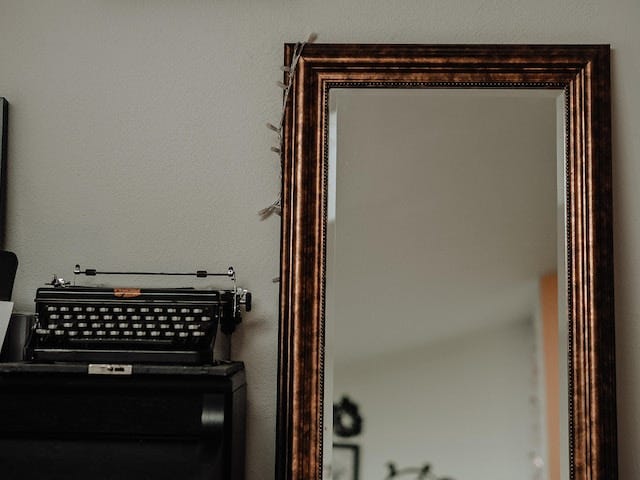Looking in the mirror
Doing the exercises in Part I of "My Grandmother's Hands" by Resmaa Menakem and RCL Pr15A
Jesus said… It is not what goes into the mouth that defiles a person, but it is what comes out of the mouth that defiles. Mt. 15:10-11.
Last week I read Part I of “My Grandmother’s Hands.” It included twelve “Body Practice” exercises which Menakem said should be done as they arise in the text. Last week, I didn’t do the exercises. I wasn’t sure I wanted to spend the extra time. This week, I went back and did the exercises.
Some began with Body Scans in which you notice how your body is feeling. And there were more challenging exercises. One asked me to remember things I had said or done which would have been micro-aggressions or “exclusionary behaviors.”[1]
That brought up very unwelcome memories: things I have said or done which were race-based and wrong. Not excusable as “well-intentioned” or ignorant. Just race-based and wrong. These were memories which I have ignored, denied or “forgotten” until now.[2] Revisiting them made me feel very uncomfortable, mentally and physically.
Here are three things I know after doing the exercises in Part I.
1. I was “raised to know better,” but I grew up in a culture which was infused with white privilege and all of the ways in which white privilege disguises and protects itself. My first language is English. My second is white supremacy.
2. As an adult, I had opportunities to learn about the need to dismantle racism and white supremacy.
3. Despite those opportunities, there were times when my words or my actions were racially exclusionary. Sometimes I was well-intentioned and sometimes I did speak in ignorance. But not always. Sometimes I was just too comfortable in my own privilege to be bothered. And sometimes I was just a coward. Menakem’s Body Practices helped me know where these memories live: they reside very uncomfortably in my mind and my body.
I think Menakem will say that these kinds of memories should not to be ignored, denied or forgotten. I think he will say that they need to be “metabolized” — processed — transformed into a different energy or way of being. I’m not sure how that happens. Maybe he will explain in Part II. I will keep reading.
“Becoming Anti-Racist” started because I was inspired by a friend’s Camino-experience of — as they say — having the Camino speak to her. This week, my camino spoke to me. It didn’t tell me what to do about the unpleasant memories of things I wish I had not said or done. But it did suggest that from here on in when I pray, I should ask for courage.
[1] Journalist and “inclusion strategist” Ruchika Tulshyan says that the term “microaggressions” is inadequate to describe the injury done by the “subtle, everyday putdowns, insults, or offensive remarks from well-meaning white peers…” We Need to Retire the Term “Microaggressions,” Ruchika Tulshyan, Harvard Business Review, March 8, 2022. She says that there is nothing “micro” or small about those injuries, and she prefers the term “exclusionary behaviors.”
[2] Most of them actually came up while I was working through Layla Saad’s Me and White Supremacy, (Sourcebooks 2020, 2023.) It remains the single best book for white people ready to work on their racism that I know of. Like My Grandmother’s Hands, in order to “get it” you need to “do it:” do the exercises in writing and reflect in a group or journal.
Photo by Laura Chouette on Unsplash


